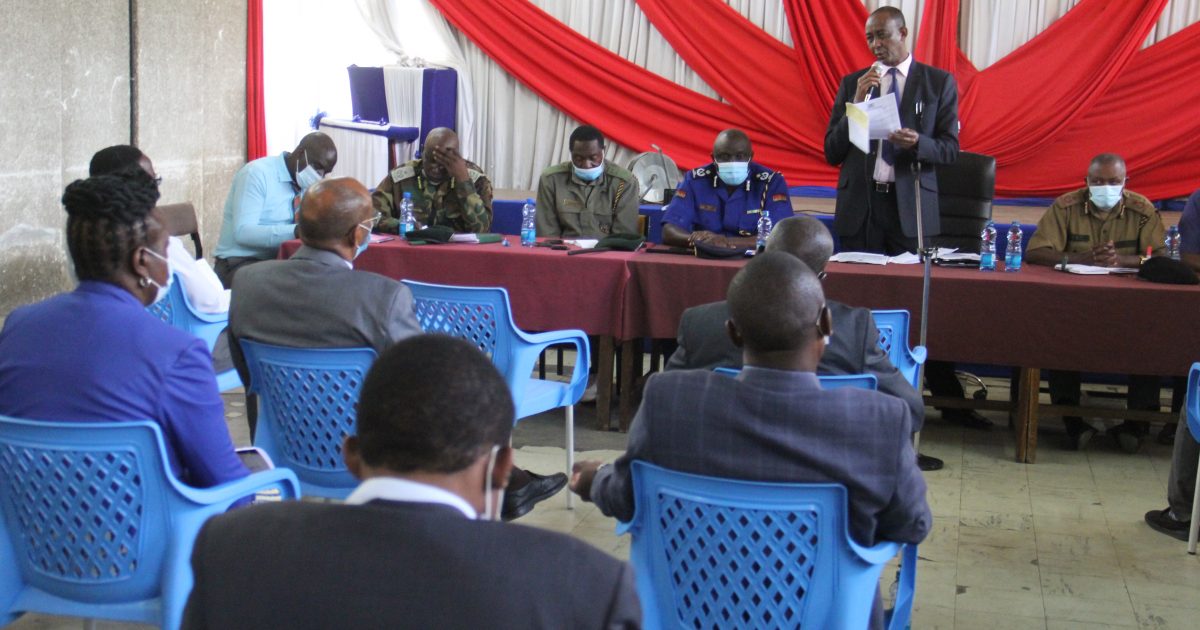Rift Valley Regional Commissioner Maalim Mohammed has called on heads of departments and state agencies to create an environment that allows their juniors to freely share their personal problems and challenges at workplaces.
While acknowledging that mental health is a serious predicament in the country, Maalim encouraged public servants to consult their superiors, peers, and family members when faced with difficult times, adding that their issues can be addressed.
He said there was need to promote awareness on the importance of mental health and stress management among public servants and urged them to open up if faced with tough situations, to avoid incidents that result in harmful practices such as homicides, murders and suicides.
Maalim who spoke during a heads of departments and state agencies meeting at his office’s plenary hall in Nakuru challenged senior public servants to seek basic training that will help them recognize signs and symptoms of stress and depression among their co-workers and encourage them to seek help from qualified mental health professionals.
The administrator added, “Mental health is of grave concern in the country, but one that can be addressed if affected persons reach out. There is so much going on in the world, but it doesn’t hurt to share your problems. Please step forward if you have pressing issues. There is no shame in it. We can find solutions and help you become even better public officers.”
He cited poor communication and bad management practices, limited participation in decision-making and low levels of support for low cadre staff as some of the factors that could trigger mental health illnesses at workplaces.
The Regional Commissioner hailed the National Police Service Commission for employing psychological counselors to offer support to police officers across the country.
The 59 counselors were in November last year deployed in 47 stations to offer psychosocial support and chaplaincy to officers living with sickness or disability acquired in the line of duty.
A task force on mental health established in 2020 by President Uhuru Kenyatta reveals that Kenya has a high burden of mental illness due to ill health, psychosocial disability and premature mortality with huge gaps in access to care.
Findings showed one in every 10 Kenyans suffered from common mental health conditions, with depression and anxiety as the most prevalent disorders.
The National Government has published the Kenya Mental Health Policy 2015-2030 which provides a framework for interventions that address the burden of mental health problems and disorders in the country. Its full implementation is projected to result in higher levels of awareness and access to care.
To create a healthy workspace, Maalim advised the heads of departments and state agencies to understand the unique opportunities and needs of individual employees and interventions and good practices that protect and promote mental health in the workplace.
He directed them to open up channels of communication among their juniors as part of ways of detecting any form of stress among them and always be keen to detect any trigger that may lead to depression, stress or mental illness and act immediately.
“Check on triggers and act immediately. Bring him or her to hospital or allow him or her to seek medical services. Triggers may be tough assignments, financial issues, marriage wrangles, transfers, working far from friends and exposure to stresses,” the Regional Commissioner pointed out.
The administrator warned that putting mental health on the back burner of employees’ welfare means an increase in reported violent crimes, homicides, suicides, gender-based and sexual violence.
“Sometimes it is difficult to know but it’s important to keep track of changes in one’s thoughts, feelings and behaviour. Observations with regard to changes in personality of junior staff should be taken seriously by their superiors,” Maalim stated.
He observed that stress, burnout, anxiety, and depression are common in workplaces in both public and private sectors but more significantly, go unrecognized by both staff and the employer. Maalim added, “this leads to poor productivity and high medical expenses as well as absenteeism.”
The World Health Organization estimates that 25 percent of the world will be afflicted by a mental health condition in their lifetime. Presently, 450 million people have a mental health condition according to the same source.
In its 2017 report on the world mental health situation, World Health Organization ranked Kenya fifth among African countries with the highest number of depression cases.
By Anne Mwale





